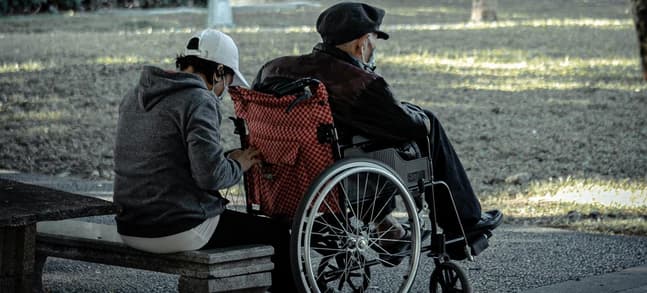Water is a vital resource that every person needs to maintain health and well-being. However, access to clean water can be challenging for people with disabilities. In this context, gravity water filters represent an important solution to help ensure accessibility and respect the rights of Americans with disabilities.
What are gravity filters?
Gravity water filters are devices that provide filtration without the need for pressure. They can be easily installed and maintained, making them ideal for households where people with disabilities may reside. These systems provide clean water without the hassle of traditional filters, which can be labor-intensive to install or use.
Americans with Disabilities Act
The Americans with Disabilities Act (ADA) was passed in 1990 to protect the rights of people with disabilities and ensure their equal access to a variety of services, including health care and household needs. This legislation requires that all public and private buildings and services be accessible to people with disabilities. Access to clean water is therefore an integral part of upholding these rights.
The Importance of Access to Clean Water
Clean water is essential for health, especially for people with weakened immune systems and chronic illnesses who may be more susceptible to the risks associated with water pollution. Gravity filters help ensure high water quality, which is critical to protecting the health of vulnerable groups, including the elderly and people with disabilities.
Inclusive Technologies
The development and implementation of gravity filters that are tailored to the needs of people with disabilities can significantly improve the quality of life of these citizens. For example, many manufacturers are developing systems with easy-to-use mechanisms that allow for easy installation and maintenance of filters. This includes automated systems that can be controlled remotely or with minimal effort.

Education and Awareness
Educational programs aimed at raising awareness of the importance of water filtration and accessible technologies can play a key role in improving living conditions for people with disabilities. Conducting workshops and public awareness campaigns will help people better understand how gravity filters can provide them with access to safe water.
Non-pressurized filters and water accessibility for people with disabilities
Non-pressurized filters, known as Tankless Filter, are an innovative solution to provide access to clean water, especially for people with disabilities. These filtration systems do not require pressure to operate, making them easier to install and maintain, making them more accessible to users with limited mobility. Tankless Filter can be easily adapted to individual needs, ensuring a high level of water quality without unnecessary effort. It is important to emphasize that access to clean water is a human right, and the use of such technologies contributes to the implementation of the principles of inclusivity enshrined in the Americans with Disabilities Act.
Assistance to people with disabilities can be achieved through a variety of approaches and initiatives. Here are some ways:
- Infrastructure Accessibility: Improving the physical accessibility of public spaces, including ramps, elevators, widened doorways, and appropriate lighting.
- Technological Innovation: Developing and implementing adaptive technologies, such as specialized computer programs, mobile applications, hearing aids, and other devices that assist people with various disabilities.
- Education and Training: Conducting educational programs and training aimed at raising awareness of the needs of people with disabilities both among the general public and among professionals in various fields.
- Employment Support: Creating programs that help people with disabilities find and maintain employment, including vocational training, internships, and mentoring.
- Social Services: Providing access to social services, such as mental health support, assistance with daily living, and care services, which can significantly improve quality of life.
- Participation in Community Life: Encouraging the participation of people with disabilities in cultural, sporting and social activities, thereby promoting their social inclusion.
- Legislation and Advocacy: Supporting initiatives aimed at improving legislation and ensuring respect for the rights of people with disabilities at all levels.
- Supporting Families: Providing information and resources for families caring for people with disabilities, including support groups and counselling services.
These measures can significantly improve the quality of life of people with disabilities and help them realize their potential in society.
Conclusion:
Providing access to clean water is an important challenge facing society, and gravity filters can be a key tool in this process. Respecting the rights of Americans with disabilities requires integrating inclusive solutions that promote accessibility. It is important to continue to develop technologies and programs that will help create a more equitable society for all.